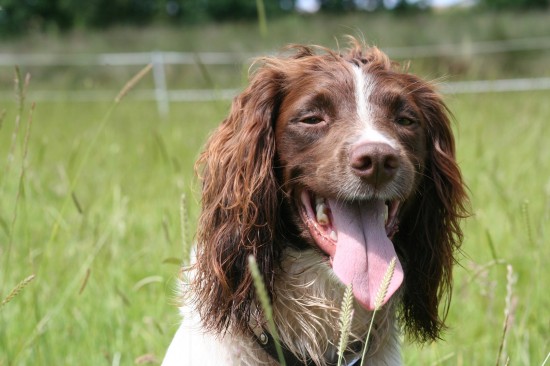
Worms are the bane of every horse owner's existence. No matter how much you try, your horse still seems to have worms. Horses and the manner in which we keep them simply make worm infestations very likely. These worms can be very dangerous, reducing your horse's health and well being, and should be dealt with as thoroughly as possible.
Horses in certain scenarios are more likely to be infested with worms and other parasites infestation. Horses that are housed in stables with a large number of horses should be dewormed more often. Very old and young horse are also much more susceptible to parasitic infestations, but care should be taken deworming them as their bodies will respond differently then horse in prime health and age.
It is vital for a horse owner to know how worms enter a horse's body. The primary way to transmit the worms is through contact with the fecal. A horse that is infested with worms are likely to produce feces that are contaminated with worms.
Horses that come in contact with these feces can eventually transmit those eggs or worms into their own bodies by ingestion. This does not necessarily mean that a horse will have to eat the feces, but rather could rub against it, and eventually transmit it to an area where feeding is done. The worms will then travel to the intestines where they will experience a feast each time your horse eats.
Deworming a horse is usually a process that involves some sort of chemical deworming agent that must be given to your horse by mouth. Most Veterinarians recommend horse owners to deworm their horses six times annually. Naturally, squirting something in your horse's mouth can be something of a task. Many horses are not too fond of strange pastes or liquids put in their mouths. There is a dewormer in pellet form, to be mixed with feed, but it has shown to be far less effective.
Deworming Tips and Considerations
- A horse that has its mouth full of food is more likely to spit out the dewormer. Washing the horse's mouth with plenty of water prior can help to reduce this reaction.
- Different dewormers are effective against different worms. Consider rotating which drug you use.
There are no real perfect approaches to administering the dewormer. Only you know your horse best, and only you will be able to anticipate how she will react. Make an effort to move slowly, and thoroughly, but be sure that the dewormer does get swallowed.
Research has begun to show that some dewormers may actually have a negative effect on worm control. The worms will start to develop resistance to the deworming medication if you overdo it. Do some research or discuss with your vet the possibility of using newer drugs, or possibly trying natural remedies, or substances such as diatomaceous earth which will actually suck all of the moisture out of a worm, killing it.
 10 Highly Affectionate And Social Dog Breeds
10 Highly Affecti
10 Highly Affectionate And Social Dog Breeds
10 Highly Affecti
 Getting Your Horse Ready For Winter
Getting Your Hors
Getting Your Horse Ready For Winter
Getting Your Hors
 Treat Equine Ulcer Symptoms With Natural Supplements Available Online
Treat Equine Ulcer Symptoms With Natural Supplements Avail
Treat Equine Ulcer Symptoms With Natural Supplements Available Online
Treat Equine Ulcer Symptoms With Natural Supplements Avail
 Dogue De Bordeaux Hereditary Health And Longevity
Dogue De Bordeaux
Dogue De Bordeaux Hereditary Health And Longevity
Dogue De Bordeaux
 5 Ways To Make Life More Comfortable For Dogs With Allergies
5 Ways To Make Li
5 Ways To Make Life More Comfortable For Dogs With Allergies
5 Ways To Make Li
Copyright © 2005-2016 Pet Information All Rights Reserved
Contact us: www162date@outlook.com